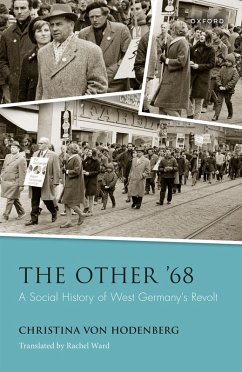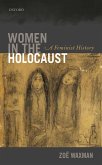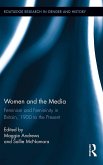The book is a new, revisionist account of Sixties protest movements in West Germany. It challenges established narratives centring male intellectuals by foregrounding families, private lives, women, and old people. Worked from a wealth of new archival sources, the book argues that '1968' was just as much about gender conflict as it was about generational conflict--even if the former was often erased from public memory. The narrative follows three generations of Germans living in the provincial town of Bonn through the turbulent years of the late 1960s. It offers a genuine social history of the period, decentring the story of West Germany's 68 socially, geographically, and generationally. The five chapters cover the Shah of Iran's visit to Bonn and Berlin, the role of the Nazi past in framing generational differences, experiences of old people around '1968', the female dimension of the protests, and the sexual revolution. The book situates the West German case within the global and West European Sixties and engages with recent controversies on the role of female '68ers, the origins of new feminist movements, and the sexual revolution. Originally published in German in 2018 by C. H. Beck (titled Das andere Achtundsechzig: Gesellschaftsgeschichte einer Revolte, 978-3406719714), it has been translated into English by Rachel Ward.
Dieser Download kann aus rechtlichen Gründen nur mit Rechnungsadresse in A, B, BG, CY, CZ, D, DK, EW, E, FIN, F, GR, HR, H, IRL, I, LT, L, LR, M, NL, PL, P, R, S, SLO, SK ausgeliefert werden.









